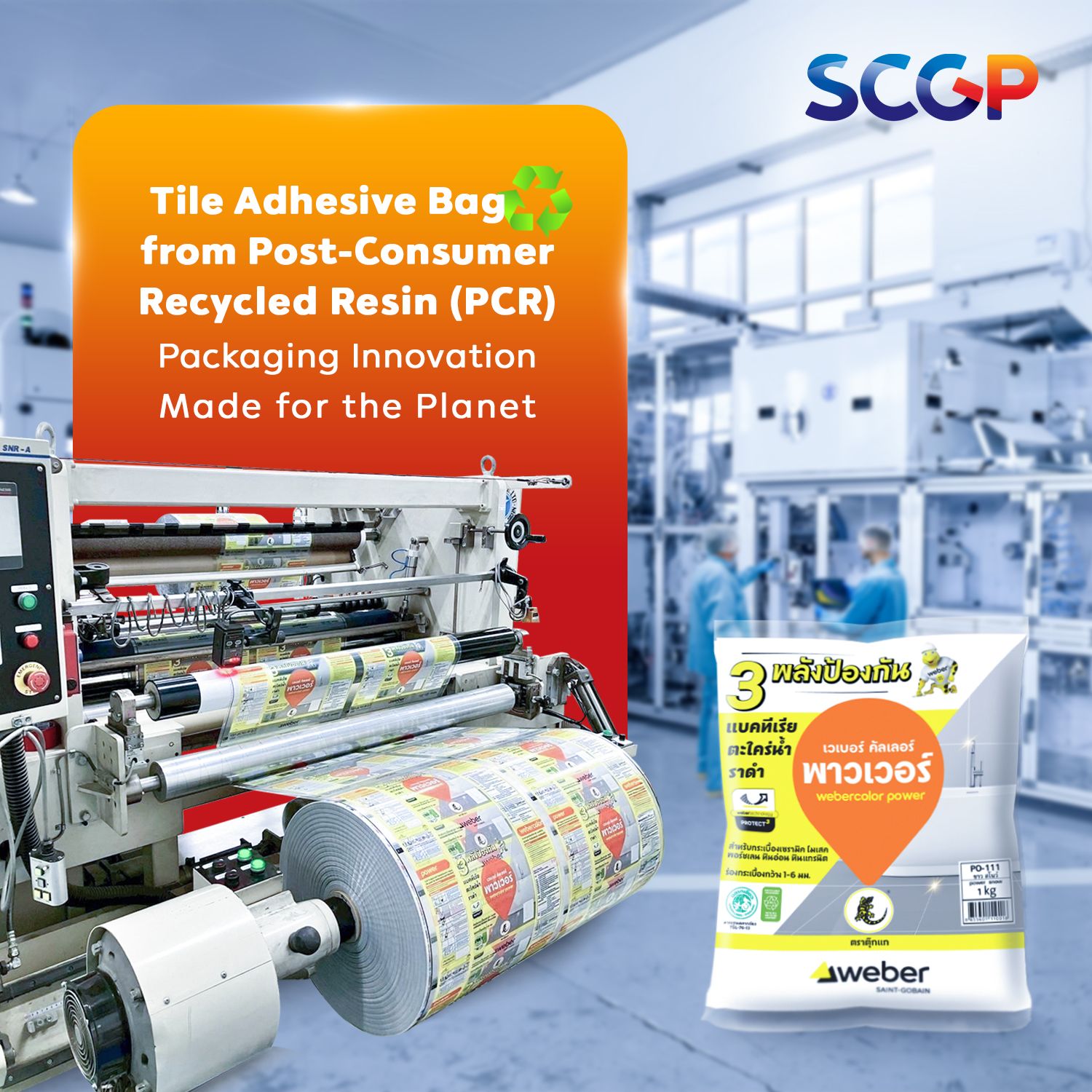Social Media Library


Currently, regardless of which industry, environmental considerations must always be the top priority, such as choosing to use packaging made from recycled plastic. This not only helps reduce environmental waste by making the most valuable use of recycled resources, but also helps reduce energy consumption from producing new plastic.
SCGP has collaborated with Dow Thailand and Saint-Gobain Weber to launch an innovative ‘eco-friendly tile adhesive bag’ that uses up to 10% Post-Consumer Recycled Resin (PCR) in its production. This involves bringing used plastic back into the recycling process and converting it into multi-grade plastic resin that can be used to produce various types of packaging, instead of being buried in landfills or scattered into the environment.
The production of this tile adhesive bag helps reduce the use of new plastic by over 2.3 tons and reduces carbon dioxide emissions by up to 2.8 tons per year. It is also manufactured according to strict international toxicology protocols, is safe for consumers, and has been officially certified to ISCC standards.
Despite being a new material, the properties of the tile adhesive bag are as effective as traditional bags – maintaining transparency, beauty, strength, durability, moisture resistance, and excellent protection of the products inside. Most importantly, after use, it can be recycled for reuse.
SCGP has always prioritized the environment by applying circular economy concepts to develop this new innovation. This tile adhesive bag represents another model of important cooperation between leading organizations with ideologies for the world, and also lays the foundation for future packaging that must be sustainable and environmentally friendly.
#SCGP #Innovation #SCGPINNO
